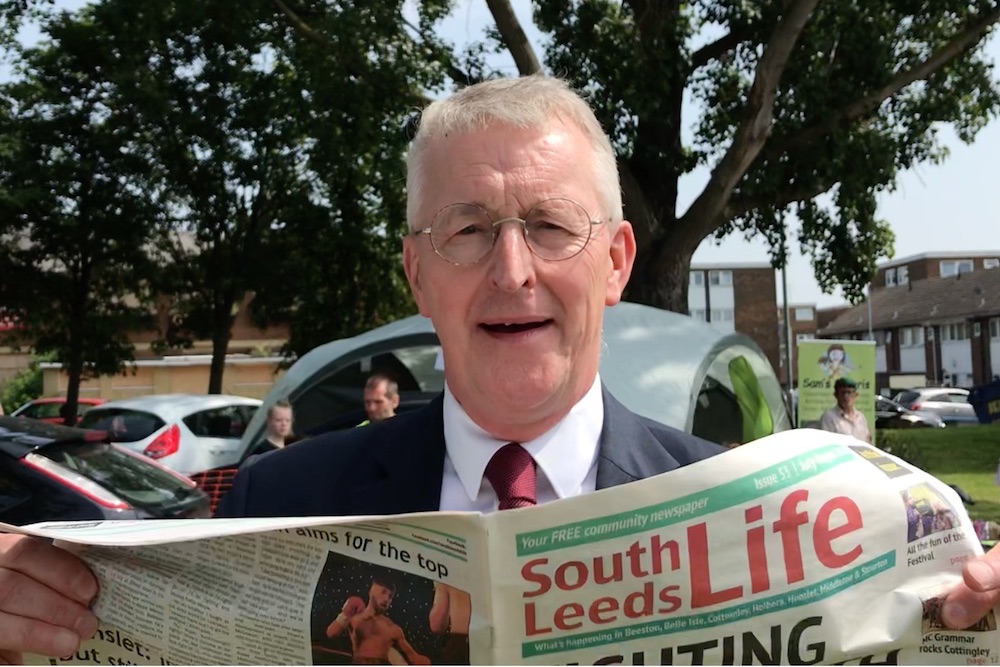
The recent council elections – and congratulations to all those elected in South Leeds and to Al Garthwaite from Beeston on becoming our city’s new Lord Mayor – was the first after a new law came in requiring us to show voter ID.
In Leeds, 601 residents were initially turned away from polling stations on 4 May, and more than a third of those – 225 – didn’t return to vote. Whether those 225 did not have voter ID or just gave up we will never know, but that is still a lot of people who were denied the chance to exercise their democratic right.
This was bad enough, but the figures take no account of the people who never even tried to go and vote in the first place because they didn’t have suitable identification. I don’t think this is acceptable and, in my view, the current law should be scrapped.
I was moved to read in South Leeds Life about the recent commemoration at Holbeck Cemetery organised by the Women’s Royal Army Corps Association to remember the women who served during the Second World War. As you reported, on 11 May 1943, twenty-six servicewomen were killed by bombs dropped on Great Yarmouth, and one of those who lost her life was 22 year old Private Vera Mann who was from Beeston Hill. She now rests in Holbeck Cemetery.
Women played a hugely important role in the war effort from transporting planes to active airfields to making weapons and munitions, tending to the sick and injured and so many other jobs including the remarkable contribution of the Women’s Land Army (WLA) and the Women’s Timber Corps (WTC).
Founded originally in World War One, women were recruited to help farmers produce food and cut timber because so many men had been called up to the front. For many years, the service of the Land Girls and Lumber Jills – as they were affectionally known – had never been recognised, until one day – when I was the Environment Secretary – I received a letter from an MP about one of his elderly constituents who asked whether something could now be done to acknowledge what they had contributed.
It was one of those occasions when being in government meant that you could do something, so I decided that we should produce a badge to honour all those who had served in the WLA and the WTC who was still alive.
We were astonished to discover that over 30,000 women wrote in, and I remember going to see the team dealing with the applications surrounded by sacks of mail, which included memories and photos. For many of them, it was the first time they had been away from home and quite a few met their husbands-to-be where they were posted. We held an event at 10 Downing Street where the Prime Minister Gordon Brown presented the first 50 badges, including to the woman who had started it all off by writing to her local MP.
On the subject of wartime service and loss, as 23 June approaches each year, my thoughts turn to my uncle Flt Lieutenant Michael Benn – an RAF pilot and holder of the DFC – who was killed when his Mosquito crashed three weeks after D-Day. Among his possessions that were lovingly returned to the family by the RAF was a letter he had written to be read in the event of his death. In it he said:
“To you all, I say ‘au revoir’. It was my dearest wish to see us all united after the war. I wanted to settle down to do what I could to prevent the suffering of another war from descending on the lives of our children. How I longed to see a world where people could be as free and happy as we were in our family.”
Had he lived, he intended to go into the Church of England and become a vicar. His death was a terrible loss to the family including to my father who got the news in a telegram in Rhodesia where he was on RAF pilot training. When I was little, my grandmother would take me to the Field of Remembrance by Westminster Abbey to place a cross and a poppy in memory of Uncle Mike, and I recall feeling a terrible sadness because I was never able to meet him. So many families on all sides in that war went through the same experience, which is why continuing to remember is so important.
And finally, on a happier note, while election campaigning recently, I came across Champions Community Sport and Health who, every Saturday, run football training on Hunslet Moor. As well as offering exercise and ball skills, they also provide lunch and a sense of pride and purpose for the large number of young people who take part. I was really impressed by the wonderful work they are doing. One of the great things about our community is the large number of people who give so freely of their time to help others. We owe them all a big debt of gratitude.
While you’re here, can we ask a favour?
South Leeds Life is published by a not-for-profit social enterprise. We keep our costs as low as possible but we’ve been hit by increases in the print costs for our monthly newspaper – up 83% in the last 12 months.
Could you help support local community news by making a one off donation, or even better taking out a supporters subscription?
Donate here, or sign up for a subscription at bit.ly/SLLsubscribe


